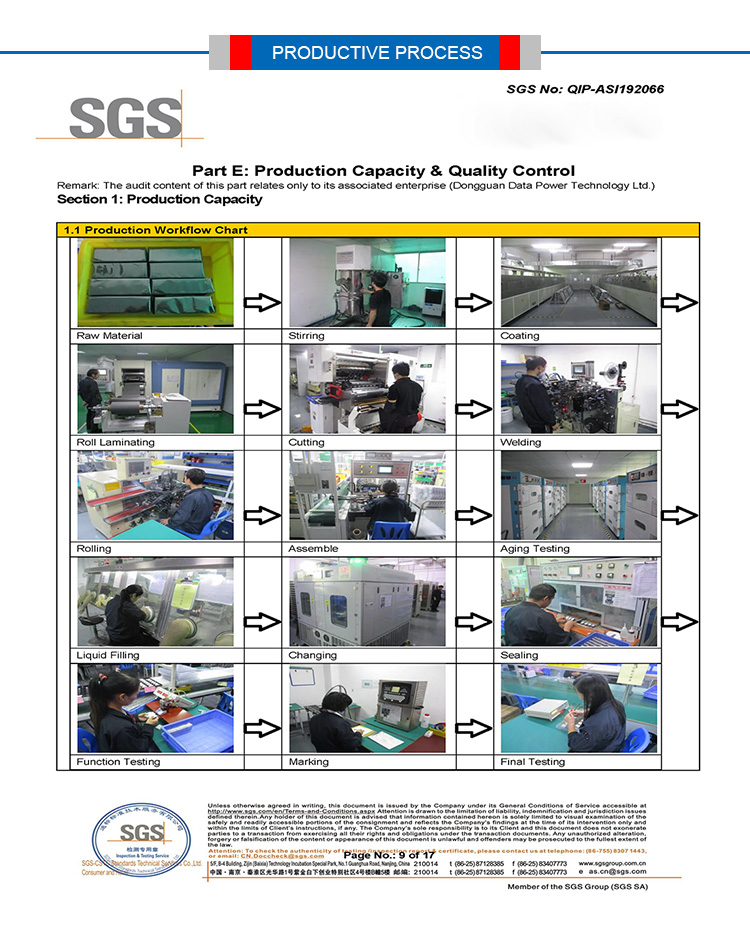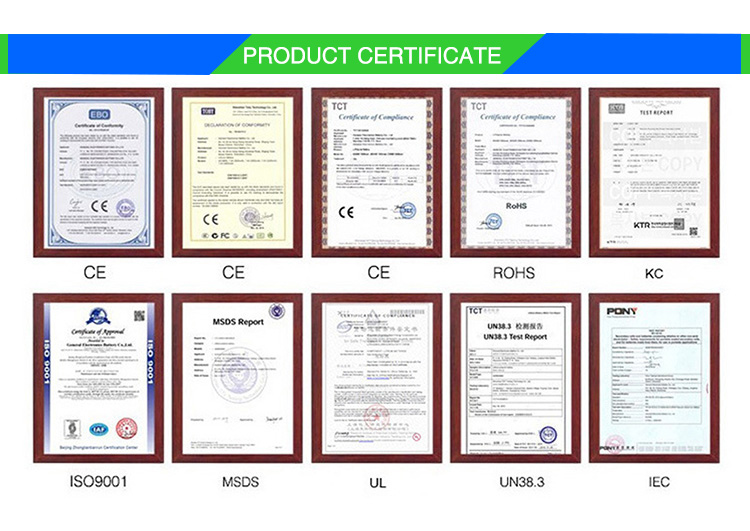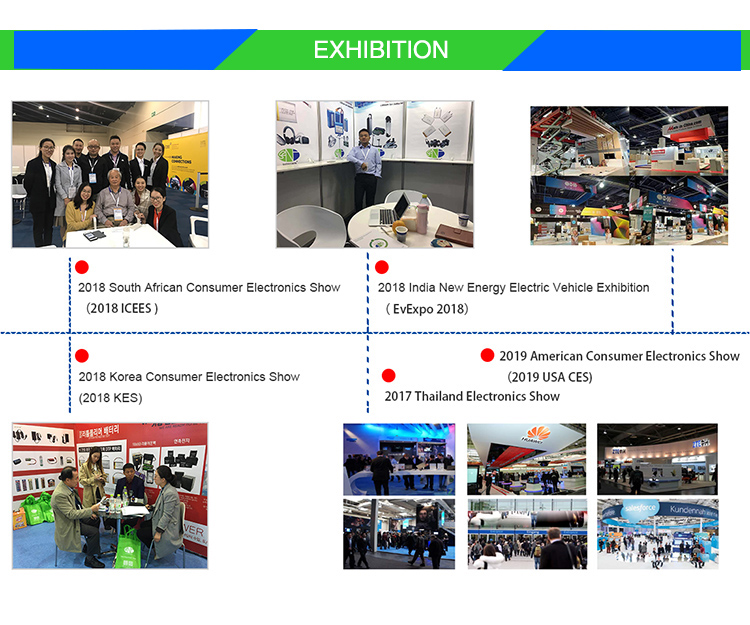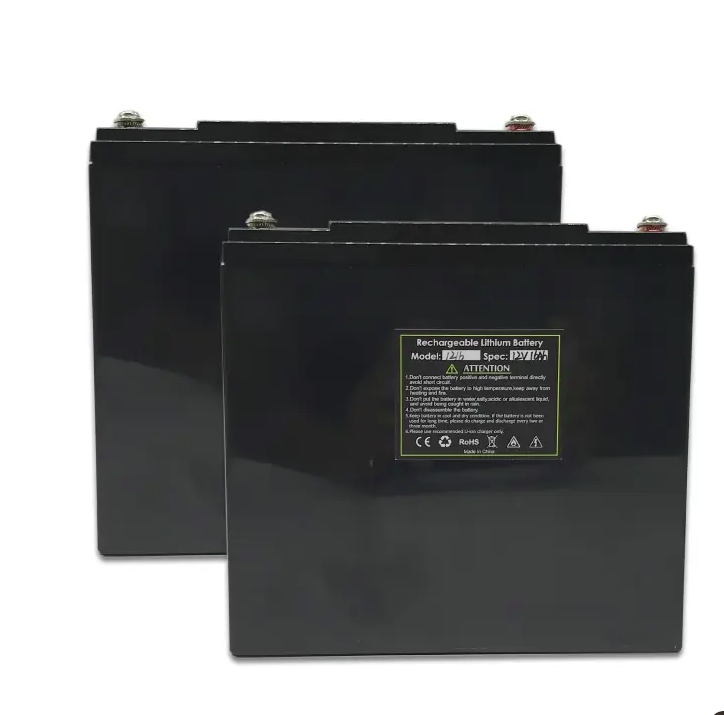
| LiFePo4 12v batteries with customized capacity 16ah,18ah 20ah 45ah 50ah 100ah | ||
| Mechanical | Cell & Method | LiFePO4 |
| Dimension(L*W*H) | 181*170*76 mm | |
| Weight | 2.5KG | |
| Electrical Characteristics | Rated Capacity | 16Ah |
| Min Capacity | 16Ah | |
| High Rate Discharge Capacity | > 90% Rated Capacity | |
| Discharge Capacity @ -20ºC(-4ºF) | > 70% Rated Capacity | |
| Norminal Voltage | 12.6V | |
| Energy | 750wh | |
| Internal Impedance(@ 1000Hz.) | ≤20 mΩ | |
| Cycle Life | >2000 Cycles @ 1C 85% DOD | |
| Months Self Discharge | ≤ 5% @ 25ºC(77ºF) | |
| Efficiency of Charge | 100% @ 1/3C | |
| Efficiency of Disharge | 95% @1C | |
| Standard Charge | Max Charge Voltage | 12.6V |
| Charge Current | 1/2C, 30A | |
| Max Charge Current | 1C | |
| Standard Discharge | Standard discharge Current | 1C, 16A |
| Max Discharge Current | 3C, 48A | |
| Discharge Cut-off Voltage | 9V | |
| Environmental | Charge Temperature | 0 ºC to 45ºC(32ºF to 113ºF) @ 65±20%Relative Humidity |
| Discharge Temperature | -20ºC to 60ºC(-4ºF to 140ºF) @ 65±20%Relative Humidity | |
| Storage Temperature | ≤ 1 Month, -20ºC to 60ºC(-4ºF to 140ºF) @ 65±20%Relative Humidity | |
| ≤ 6 Month, -20ºC to 30ºC(-4ºF to 80ºF) @ 65±20%Relative Humidity | ||
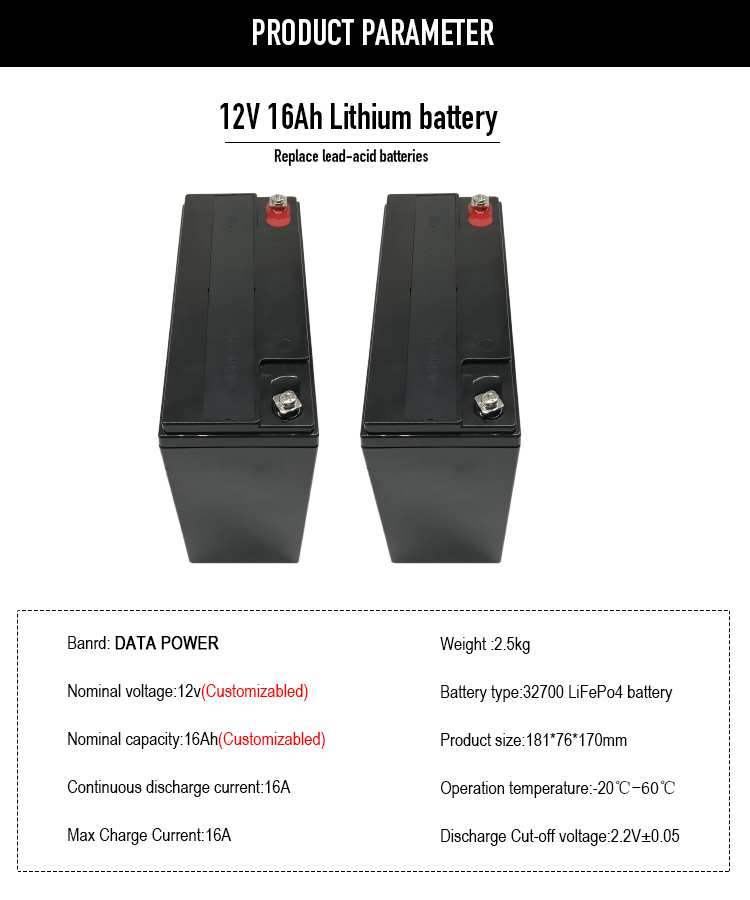
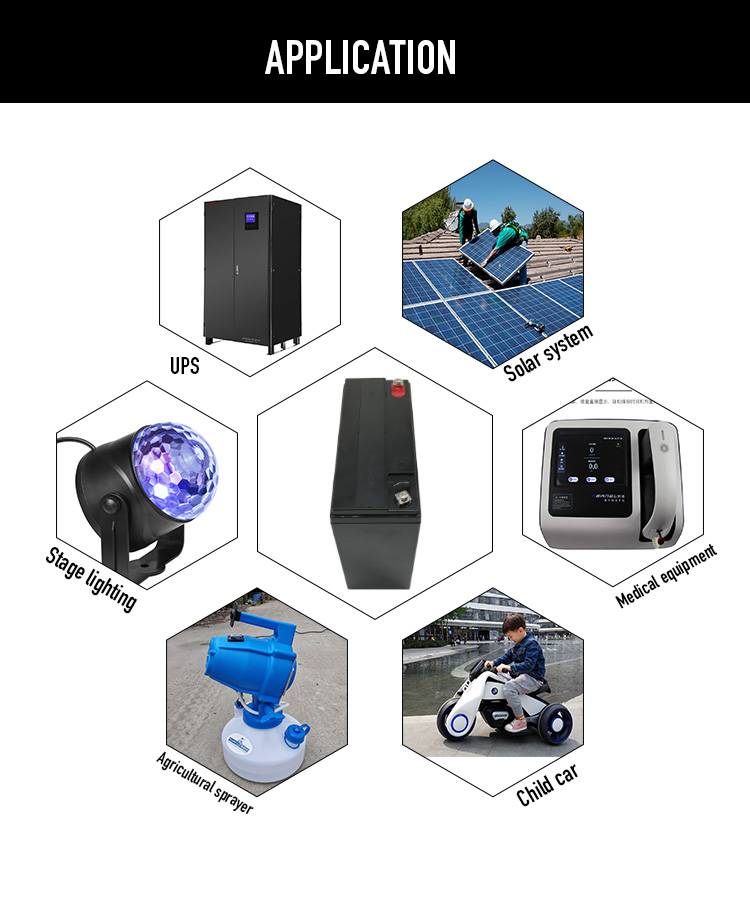
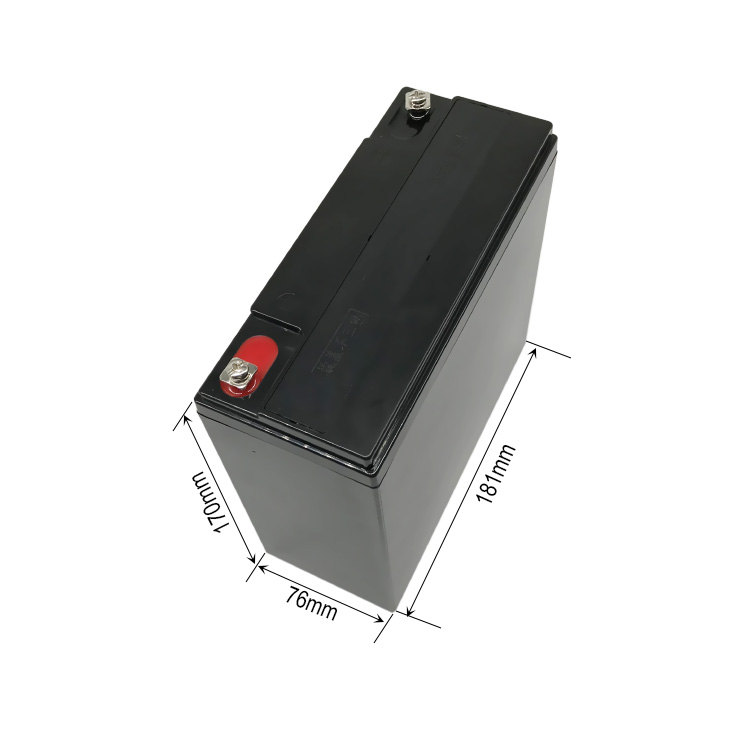
More models
| Model | Voltage | Capacity | Dimension | Weight/ Power |
| 48V270A-15S2P | 48V | 270Ah | 600×440×190mm | 12.96 Kwh |
| 48V100A-16S1P | 48V | 100Ah | 460* 483* 178mm | 45kg |
| 48V200A-16S2P | 48V | 200Ah | 580*483*220mm | 90kg |
| 24V200A-8S2P | 24V | 200Ah | 460*483*220mm | 45kg |
| 24V100A-8S1P | 24V | 100Ah | 308* 483* 222mm | 25kg |
| 12V 5Ah 4S1P | 12V | 5Ah | 150*65*94mm | 0.8kg |
| 12V 10Ah 4S2P | 12V | 10Ah | 150*65*94mm | 1.4kg |
| 12V 12Ah 4S2P | 12V | 12Ah | 150*65*94mm | 1.4kg |
| 12V 18Ah 4S3P | 12V | 18Ah | 150 * 95 * 95mm | 2.1kg |
| 12V 100Ah 4S1P | 12V | 100Ah | 260*165*220mm | 10kg |
| 72V220A-23S2P | 72V | 220Ah | 700×410×230mm | 15.84Kwh |
1. High energy density
| lifepo4 battery cell | LiNiCoMn battery cell (ab.NCM battery) | |
| weight energy density | 150wh/kg | 200wh/kg |
| volume energy density | 280wh/L | 334wh/L |
2. Low internal resistance
Methods of reducing the internal resistance:
**Using carbon coated aluminum foil
**Multiple electrode tab design
**Increasing the width of electrode tab
**Coating PVDF on battery separator
**Pore-creating artificially
3.Long lifespan
Usable for more than 2,000 charge-discharge cycles
> 4 times than lead acid battery
> 2 times than li ion battery
4.Excellent performance in high and low temprature
Usable in extremely cold and hot environments (-20 to 60 ºC)
